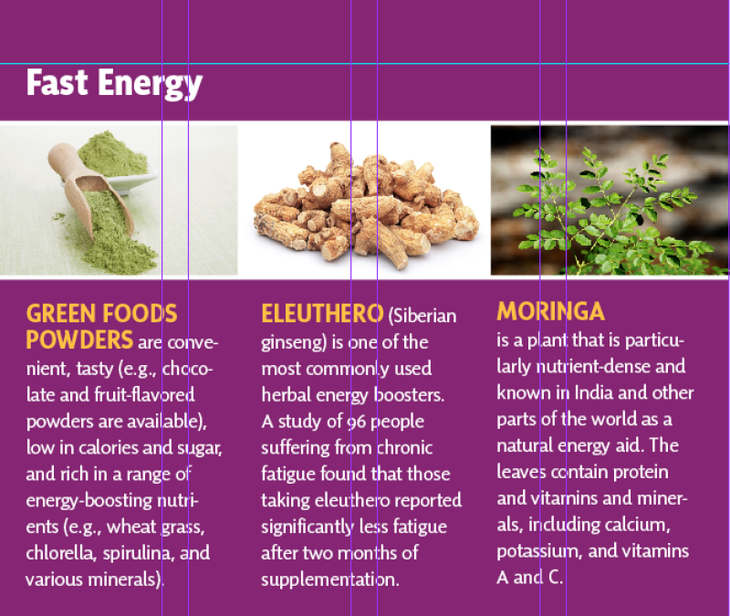Secrets To Non-Stop Energy
Feeling strained, drained, or just plain pooped? Here are easy ways to get — and stay — energized.
Get full access to Outside Learn, our online education hub featuring in-depth nutrition, fitness and adventure courses, and more than 2,000 instructional videos when you sign up for Outside+..
Take a look at a bookshelf, magazine rack, or best-seller list, and you’ll see dozens of references to energy. It’s one of the most pressing health issues of our times. In fact, almost 80 percent of Americans say that they’re fatigued and lacking in energy or motivation. Why are we so depleted and drained?

“Many people complain of being tired because our environments have changed drastically, but our bodies haven’t,” says Scott Young, author of the blog Get More From Life. “Modern technology gives us new conveniences, but it also gives us new problems. Living in an environment of constant distractions makes the quiet downtime our bodies once expected a rarity.”
The dictionary defines energy as “the strength and vitality required for sustained physical or mental activity.” But in reality, there are four main types of energy, all interrelated and connected. These are physical, mental, emotional, and spiritual. And while we tend to think of low energy as physical fatigue, it’s more complicated than that. If you’re working long hours in front of a computer, and your relationship with your spouse is drained, you’re probably not lacking in physical energy. Instead, it’s likely that your sense of depletion comes from mental and emotional strains.
That doesn’t mean you need to retreat from the world and live like a monk. Pushing forward, sometimes to the point of exhaustion, is necessary to stretch boundaries and grow—physically, mentally, emotionally, and spiritually. The trick is to incorporate periods of rest and recovery with practices that promote and sustain stamina. Here are just a few.

Physical Energy
The physical body must be fed, rested, and generally healthy for energy to flow. For most of us, though, when life gets busy, those efforts to keep our bodies in tune fall by the wayside. We stay up late, skimp on nutrition, and skip the gym—exactly what we shouldn’t do. Ways to nourish your physical body:
Eat less, but more often—and get plenty of key energizing nutrients. Food equals energy, so maintain a steady supply by spreading out meals over the day to ensure your body and brain have ready nutrients at all times. Another benefit to eating less: digesting a big meal drains energy reserves. And be sure your nutrient levels are up to par. Low levels of omega-3 fatty acids, iron, and vitamins C, B12, and D can make you feel fatigued. If your diet is less than optimal, take a multi with at least 100 percent of your daily requirements.
Sprint. Interval training—intense bouts of exercise such as sprinting for 30 seconds to a minute, followed by recovery periods—boosts energy and promotes overall strength. Exercise also increases endorphins, the body’s feel-good chemicals. Schedule your exercise for early afternoon, and do it outside. The sun’s rays optimize a flagging circadian clock that’s responsible for afternoon slumps.
Breathe. Oxygen is the single most important factor in physical energy. Deprived of it for even a few minutes, the body will perish. Flood your body with oxygen with simple deep breathing exercises: Inhale slowly into the abdomen to the count of five, gently retain the breath for the count of 10, then exhale to the count of 10. Work it into your daily routine; before every meal, take 30 slow, deep breaths in this way.
Sleep. “We continue to live by a remarkably durable myth: sleeping one hour less will give us one more hour of productivity,” says Tony Schwartz, CEO of The Energy Project. “In reality, research suggests that even small amounts of sleep deprivation take a significant toll on our health, our mood, our cognitive capacity, and our productivity.” If you struggle with sleep, try a gentle supplement, such as valerian or passionflower. If you haven’t slept, take an afternoon nap; studies show a siesta can make up for up to an hour of lost nighttime sleep, and can boost alertness, performance, and mood.
Mental Energy
If you have a typical day job, most of your energy will be of the intellectual variety (as opposed to professional athletes, who rely on physical energy). Mental energy includes everything from advanced problem-solving to remembering the dry cleaning. When it’s low, you make mistakes, forget tasks, and feel cranky and fatigued. What to do about brain drain:
Switch gears. Close your laptop, turn off the phone, and do something else. Any reasonably mindless task can give your brain a chance to turn off and rest. Fold laundry, straighten your desk drawer, sweep the floor—or run up and down the stairs for 5 minutes to work in a little interval training.
Drink water. One study found that women who were mildly dehydrated (about 1 percent) experienced fatigue, low mood, and loss of focus compared to optimally hydrated women. Shoot for 64 ounces or more every day of pure, filtered water; add a splash of grapefruit or pomegranate juice to make it tastier. Herbal teas and high-water foods, such as oranges, tomatoes, watermelon, and soups, also help hydrate.
Exercise your brain. Mental stimulation increases energy and improves brain function in the same way physical exercise strengthens the body. Some ideas: learn a new language; read one non-fiction book a week; do vocabulary quizzes; change your driving route to work. Or learn to foxtrot, salsa, or tango—studies show that dancing enhances cerebral and cognitive thought processes.
Take a vacation. Most working Americans don’t know how to take time off. In one survey, a third said they ate lunch at their desks and more than half said they expected to work during their vacations. But time off can sharpen your mental saw. Book a flight, pack your sunscreen, and leave your laptop behind, and you’ll increase intellectual energy. In one study, performance improved by 8 percent for each additional 10 hours of vacation that employees took.
Emotional Energy
Worried about money, arguing with your spouse, or dodging a snarky boss at work? Your emotional energy is probably drained. Monitor your emotions, process your feelings, and set boundaries with these daily practices:
Avoid energy vampires. These are the folks who complain, criticize, and generally suck the life out of you, leaving you depleted and drained. Surround yourself with loving, positive people who support and inspire you. If you’re stuck with an unavoidable vampire at work, set kind—but firm—limits. Listen to a whining colleague for a moment, and then say something like “I hope things work out! I’ve got to get back to work.”
Let it out. Holding onto negative emotions is the surest way to drain your energy. Crying can be healing on many levels besides just expressing sadness or frustration. For example, studies show that emotional tears contain hormones produced by the body when under stress. The same goes for anger: In one study, people who repressed their feelings were at risk for developing diseases. So rent a sad movie, write about your feelings, rage to a friend—do whatever it takes to release pent-up emotions, and you’ll increase energy (and possibly lifespan).
Stay positive. Fear, anger, worry, and negativity aren’t necessarily bad, but when they crowd out all positive thinking, they drain energy. Every day, find a way to increase your optimism. Read motivational books, write down all the awesome things about yourself, or make a gratitude list of blessings in your life. If you’re plagued by worry, write out a worst-case scenario. Most of the time, you’ll find that “the worst” isn’t really all that bad.

Spiritual Energy
This is about your ultimate purpose, that which motivates you and gives your life meaning, your highest aspirations and a sense of your own divinity. “It’s the most powerful factor of energy, and it controls the other three,” says Young. “A strong enough spiritual dimension to your energy can make up for huge mental, emotional, and physical deficits.” Spiritual energy may be expressed by connection with a higher power, an organized religion, or even a dedication to charity and humanitarian efforts. Some ways to make yours stronger:
Live the right way. Are your actions in alignment with your values, morals, and beliefs? If not, it can be a huge spiritual drain. Keep a journal to stay conscious of your actions—take time each night to look back at your day and ask yourself where your actions may have deviated from your values. Then write an alternative, a way you might have behaved differently.
Create a ritual. Rituals create meaning and ground spiritual ideals in physical practices. They may include anything from religious ceremonies and celebrations to saying a blessing before a meal. Create a ritual that reinforces your spiritual ideals: Welcome the day with yoga sun salutations; light a candle and meditate every evening; have a weekly gratitude meal with family or friends. And find a community of like-minded people who share your spiritual beliefs with whom you can practice rituals.
Know your purpose. Why are you here? What’s the reason you were born into this planet, at this particular time? “How clear are you about your own purpose?” asks Schwartz. “How enthusiastic are you to get to work in the morning? How intentional are you about making what you do matter?” That doesn’t mean you have to change the world; maybe your purpose is to raise your child, bring joy to your friends, or be an inspiring teacher to your colleagues. If you don’t have a clue, find a mentor who can help guide you to your highest aspirations.